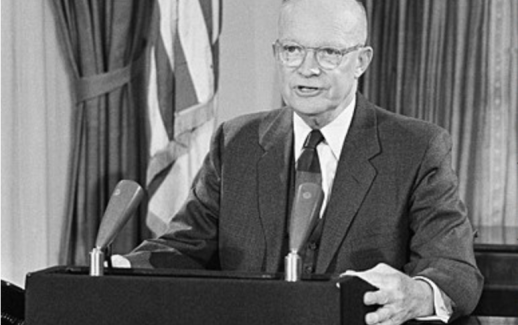“The Social Dilemma” documentary offers a pithy insiders’ look at social media’s and search engine roles in the ‘divisiveness pickle’ felt by U.S. Americans, to use the baseball term also known as a “rundown” between bases. The false dichotomies in demagogic, agitation propaganda, and partisan narratives make “the pickle” an apt analogy.
The Social Dilemma answers in part the question: would we have so many social divisions when engaging with others in person if social media and internet search social engineering were not core business practices? Or is our division worsened by exposures from overspent human life time online, using isolating devices? The passive, attention-divisive precursor was likely television, with its loud ads. Yet on the internet, we feel more in control and so are more easily deceived. As such, the effects of the personal bubbles of our cars during commutes should have been a preview of how the solitary act of internet surfing might affect our relationships with self and others.
Not only do we find ourselves in a pickle-rundown between the autocrats fighting cyber and information warfare online to influence, divide, and use us, but we are rundown between the real and virtual worlds, dividing our time between virtual and personal experience.
This first division is a dual structural premise that drives multi-tasking, and adds tasks and statuses by which we are providing value for others without understanding how, how much, or whether it is a fair exchange. Arguably, online activity is high-concept, uncompensated, part-unconscious servitude rooted in adhesion contracts that acquire rights to our civil liberties in exchange for speech platforms among others for work, convenience, less costly social connection, and entertainment.
As to who should own the benefits of our activity, recall the related 5th Amendment question of who should own our data, content, original thoughts, and the profits from them.
Foreign adversaries have learned enough about how all of this works and affects U.S. Americans that they have been using the virtual and real worlds to create useful, differentiated silos among us (confirmation bias, distrust, fear, and hardened attitudes) on the baited hook of faux individualism inherent in the internet search. That search premise falsely insinuates to the user: ‘You found it on the internet, so you must have found it by thinking for yourself.’
There are mirages of critical or free thinking inherent in the felt form of freedom to search the unseen order of the internet that is better understood by those with the KSAs to be in the know, as seen in The Social Dilemma. That is not most Americans, and indeed, increasingly consists of non-Americans with work visas (not necessarily a subversive element, yet not necessarily not, either) depending on whether there is autocratic or terrorist leverage with loved ones in their homelands. And so autocracy works to reach beyond its borders to poison the freedom its refugees and emigrants to the USA would otherwise enjoy. With the Oompahs in the story of Willy Wonka, I don’t like the look of it.
It is possible to break a pickle in baseball but more often the runner is run down and tagged out. The odds are against the runner with two basemen who can throw the ball faster than that runner. Yet fortunately, this analogy breaks down.
The analogy breaks down because in the real and virtual pickles, we are a nation of runners. Although we face two or more well funded autocratic basemen, their workforces, and lesser state subs on the bench, we still greatly outnumber them. Without greater awareness, however, it does not matter. Savvy internet actors use the wild west of relatively free and accessible social or business networking media as a weapon of influence (fielding, shaping, and active measures tradecraft). Until U.S. Americans learn how this works in practice, they are vulnerable to constantly changing exploits.
In the balance of power between still relatively-free, semi-thinking Americans and social engineers from nation states, companies, and non-state groups, the balance is unstable where experts use the majority’s weight against the majority demographic for online control of offline behavior. Add artificial intelligence and the speed of the computing, and we see a tipping-point weapon either for freedom or totalitarianism, depending on how centralized the control of such programs and algorithms is. While A.I. is not the only future factor, it is heavily funded (some unknowingly by you and me).
The U.S.A.’s recent population estimate based on the latest census data is around 332,000,000+/- people. Yet we are victims of our predecessors’ success, which makes us less aware of the implications of it. We take too many luxuries as necessities, and then, as dependencies. When that scares a certain cross-section of Americans susceptible to conspiracy theories, there is even distrust for real and virtual combined dimensions of supply chains, instant communication, efficient resolutions, and automation. These benefits from technology but their excessive central control with few alternatives drives fear among those who read and believe conspiracies and apocalyptic prophecies as applicable to today.
Unfortunately, driven by primal fear, too many careen to some opposite mental extreme assuming that at some point they must become survivalists, collect outsized firearms caches, and take control over their lives by force against others. While there may be a season for that, education and application by hard work can get done efficiently what warfare would waste and self-defeat at massive costs in human loss and suffering. Obviously, mass extremes weigh against freedom, life, and future thriving. What are some ways out of this?
That is a consultancy topic that Stratpass Corporation is working on, among others. For now, consider the Center for Humane Technology as an informed starting point for reversing the negative effects of technology on human beings. A worthy goal, and good start.

